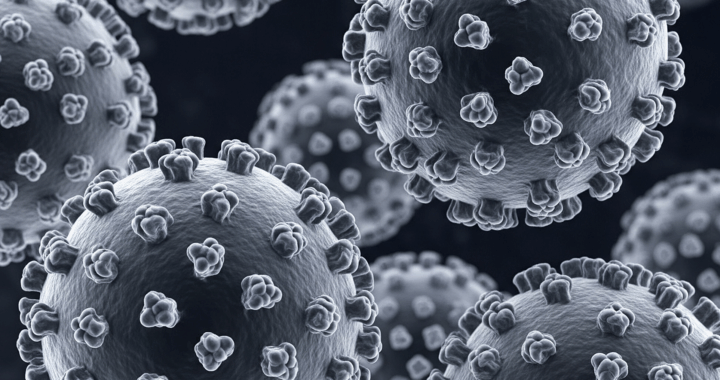A rare medical case has revealed that a common skin virus can directly cause one of the most common cancers in the world. Researchers P. Ye et al. documented the first known instance of a beta-human papillomavirus or beta-HPV integrating into a tumor and sustaining its growth. This challenges long-held assumptions about the role of these viruses in cutaneous squamous-cell carcinoma. The investigation is detailed in an article published in July 2025 in the New England Journal of Medicine.
HPV and Skin Cancer: Rare Medical Case Revealed Beta-Human Papillomavirus Can Drive Aggressive Cutaneous Squamous-cell Carcinoma
Background
The patient, a 34-year-old woman, suffered from recurrent, aggressive cutaneous squamous-cell carcinoma that resisted multiple surgeries and immunotherapies. Unusual disease patterns prompted referral to the U.S. National Institutes of Health, where advanced molecular testing identified the DNA of a beta-HPV type integrated into her tumor cells and actively producing cancer-driving viral proteins.
Beta-HVP represents a group of viruses commonly found on human skin and considered part of the normal biome of the skin. It is usually harmless but can cause warts. Beta-HVPs can act as co-carcinogens with ultraviolet radiation since they can interfere with DNA damage repair and make cells susceptible to mutations. This means that they can increase the risk of skin cancer when combined with sun exposure.
Findings
Note that the tumor was unlike typical skin cancers caused by ultraviolet damage. It displayed a few common mutations and had a low tumor mutational burden. Functional testing ruled out DNA repair defects. This points instead to an immune system failure. Genetic analysis revealed pathogenic mutations in the ZAP70 gene. This gene is essential for T-cell receptor signaling and antiviral immune responses.
The ZAP70 gene defect severely impaired the ability of the patient to generate an immune response specific to the beta-human papillomavirus. This allowed the virus to persist and even drive cancer growth. The doctors performed an allogeneic stem-cell transplant to address this. It involved replacing her defective immune system with healthy donor cells capable of recognizing and attacking the virus-infected tumor cells.
Nevertheless, following the transplant, laboratory tests confirmed restoration of T-cell function and strong HPV-specific immunity. Clinically, every HPV-related lesion, including the aggressive squamous-cell carcinoma, regressed completely. The patient has remained cancer-free for over three years. Her medical outcome has provided compelling evidence that the virus was essential for sustaining the malignancy.
Implications
Experts say the case redefines how beta-HPVs are understood in skin cancer. Traditionally viewed as secondary contributors that promote ultraviolet-induced mutations, they may, in certain immunodeficient patients, act as primary oncogenic drivers. This insight could influence diagnostic testing and treatment strategies for aggressive and treatment-resistant skin cancers in patients with immune dysfunction.
Researchers caution that this is a single case. It still raises important questions. Future studies must determine how often beta-HPV directly drives skin cancer and which immune defects create similar vulnerabilities. The findings not only add to discussions on virus-driven cancers but also suggest that restoring immune function could be a therapeutic pathway in virus-driven cancers beyond this rare presentation.
FURTHER READING AND REFERENCE
- Ye, P., Bergerson, J. R. E., Brownell, I., Starrett, G. J., Abraham, R. S., Anderson, M. V., Martin, T., MacMath, D., Kuehn, H. S., Padiadpu, J., Zhao, S., Rosenzweig, S. D., Tussiwand, R., Leonard, W. J., Pittaluga, S., Raffeld, M., Arnold, D. E., and Lisco, A. 2025. “Resolution of Squamous-Cell Carcinoma by Restoring T-Cell Receptor Signaling.” New England Journal of Medicine. 393(5): 469-478. DOI: 1056/nejmoa2502114
